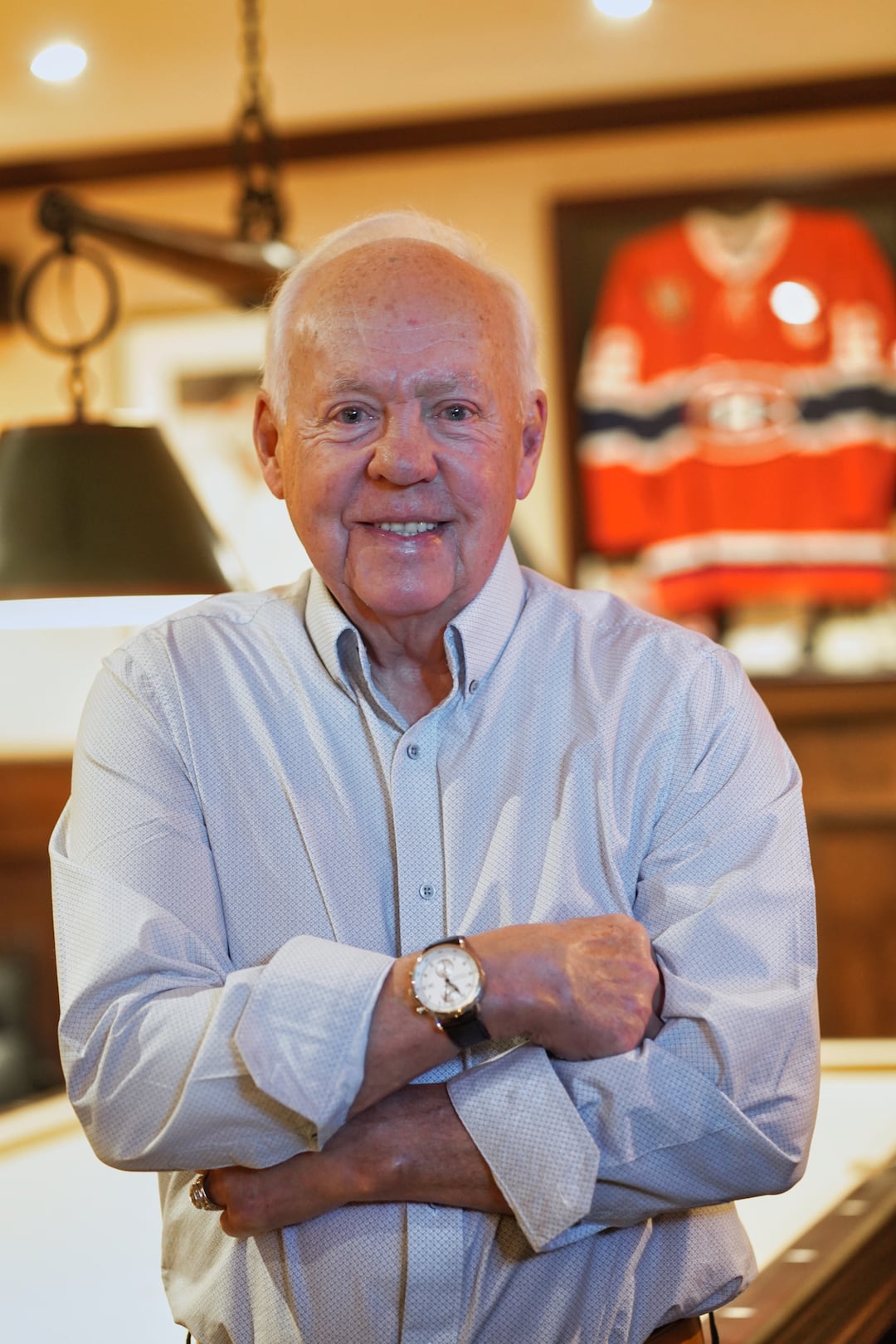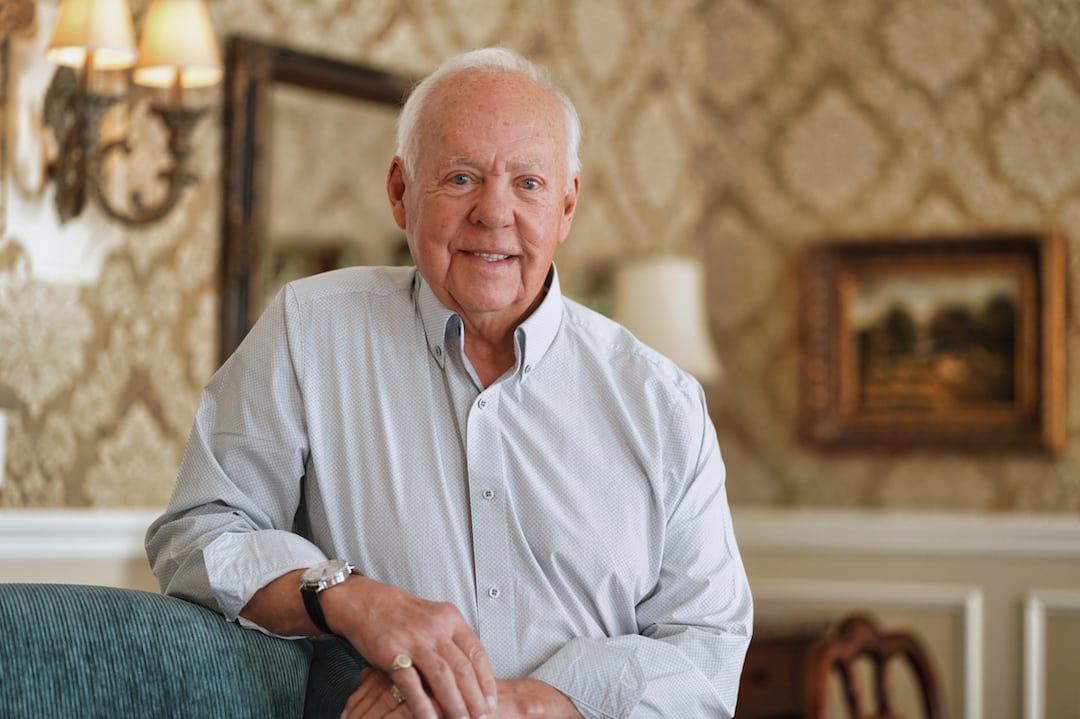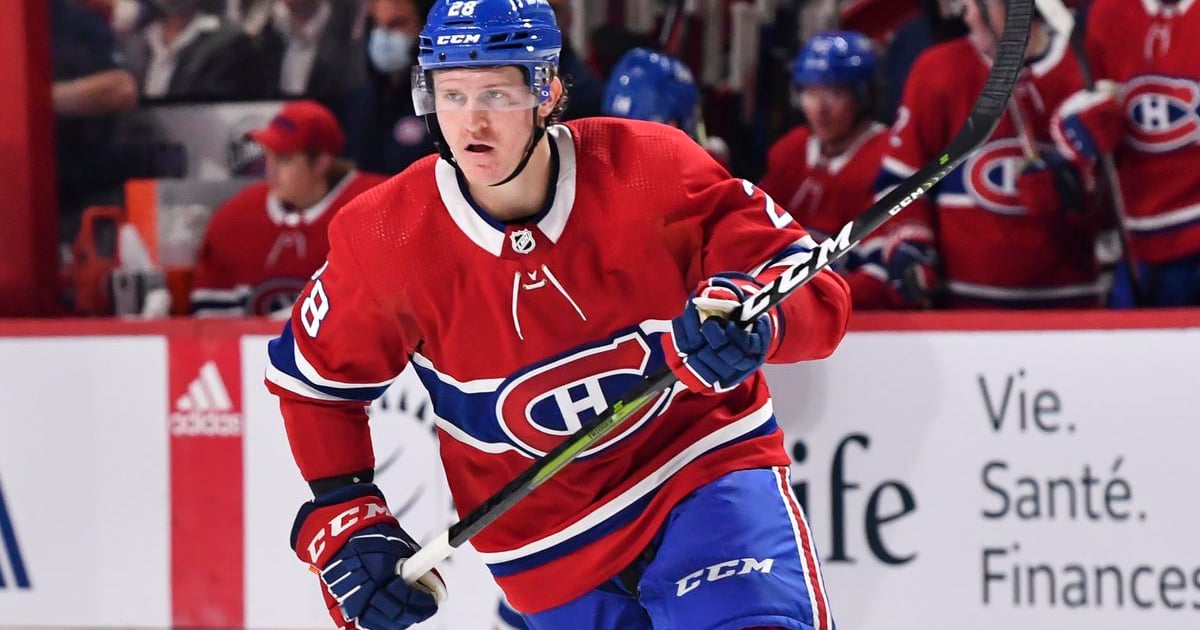When they say that time flies… Yvan Cournoyer is celebrating his 80th birthday today. For hockey fans who saw him play for the Canadians in his early days, this is almost unimaginable. Next Tuesday will also be 60 years since Cournoyer, who was still a junior at the time, played his first game with the Habs. He scored the first of his 428 regular season goals in a 7-3 win at Detroit.
Cournoyer smiles when I ask him what it’s like to be 80 years old.
“If you are healthy, age is secondary,” he answers.
Photo credit: PHOTO AGENCE QMI, MARIO BEAUREGARD
Looking at it, we can see that the new octogenarian stays in shape. His hair may be bald, but his shirt suits his strong frame.
The man still consists entirely of arms and legs.
Good feeling
The interview had lasted a good twenty minutes when he returned to his old age.
“Being 80 years old is hard,” he adds, still in a serious tone.
“But I don’t celebrate my birthday. I’m celebrating because I’m still alive at 80!” he says, giggling.
Typical reaction from him.
Cournoyer has a good sense of humor. It’s his way of putting things in perspective.

Photo credit: PHOTO AGENCE QMI, MARIO BEAUREGARD
But know that he is comfortable and comfortable in his own skin. He radiates happiness. He leads a good life with his charming partner Evelyn, who prefers to stay in the shadows. For her, the public side of her relationship lies entirely with her famous husband.
Member of two dynasties
Not surprisingly, Cournoyer takes positive stock of what life has brought him so far.
“I would probably do the same thing again,” he says.
“Hockey is my life and it still is. If the Canadian loses, I won’t go to bed with a different mood. It’s fun when the team wins. When she plays in the playoffs, my palms still sweat during games.”
The Canadian won the Stanley Cup 10 times in Cournoyer’s 15 full seasons with the team, which was largely made up of talent from Quebec.
We will never see such rule again.
Does this reality make Cournoyer sad?
“Yes and no,” he replies.
“Recently I told Vincent Damphousse that he was lucky to win the 1993 cup. The boys from back then are still together. There aren’t many players my age left who were there when I started.”
Cournoyer divides his 10 Stanley Cup championships into two parts. He won his first five victories alongside Jean Béliveau, Henri Richard, Claude Provost, Jean-Tremblay, Ralph Backstrom, Lorne Worsley and other players of the time.
The following generation, consisting of Guy Lafleur, Jacques Lemaire, Steve Shutt, Ken Dryden, Guy Lapointe and others, were the architects of the 1973 conquest and those covering the period 1976 to 1979.
“THE timed coordination is really an important factor,” explains Cournoyer in this context.

Photo credit: MARIO BEAUREGARD/AGENCE QMI
The series of the century or the 10 Stanley Cups?
Cournoyer saw the National League change during his 15 seasons with the Canadiens.
For the first three years, the NHL had six teams and the Habs still traveled by train. The Canadian young players, including him, took part in the training sessions of the main team, which made it easier for them to integrate into the team when they switched to the professionals.
The players were a big family.
“The teams played against each other 14 times a year,” he remembers.
“The rivalry was extraordinary.”
Then the expansions followed each other at a rapid pace. The squad number had grown to 17 when Cournoyer was forced to withdraw from competition in 1979 due to a back injury.
But the 1972 Century Series is probably the event that has had the deepest impact on Cournoyer’s career.
“This series completely changed the sport of ice hockey,” he says.
“We knew nothing about the Russians. We were told that they played with worn-out skates and bad sticks and didn’t count on good goalies. For my part, I told Frank Mahovlich that they must be good after their numerous victories at championships and Olympics.
“Sometimes I wonder if I prefer our victory in the Century Series to the ten Stanley Cups I have won.”
A plan B
Ultimately, Cournoyer had the career that admirers of Maurice Richard and Jean Béliveau dreamed of at the time. The Rocket is the one who opened the door to a host of great Quebec players moving to the National League in the second half of the 20th century.
Cournoyer not only wanted to play in the best league in the world, he also really wanted to play with the Canadians.
What if it hadn’t worked?
“I would have been a machinist,” he says.
“My father had one Business on Remembrance Street, Lachine. As teenagers, we didn’t have the opportunity to go to school often because of all the bus rides we took.
“So I learned the craft from my father. I liked it, I liked the smell that the machines gave off and that spread everywhere Business. We had around ten employees working for us. My father offered Business to my brother who said no.
“As for me, I made a mistake. I played hockey!”
Faster, always faster!
It is impossible to summarize the career of a Canadian legend like Yvan Cournoyer in two texts. It would require a book.
So let’s start this overview with his famous nickname, the Road runnerswhich was given to him by Mark Mulvoy, former journalist for Sports Illustrated: “When I met him, I told him that I had to run faster for the rest of my career!” says Cournoyer.
“I was lucky to have that speed as a kid. Because of my skating back then, I always played with players who were older than me. I had great acceleration power. The boys told me that I didn’t look young. My speed allowed me to reach the National League.
His first NHL game
“I arrived at the hotel in Detroit with my skates and my stick. When I saw Henri Richard I told him I was coming to help the team. He looked at me with a look that said: Oh yes, of course you’re coming to help us! But in my head, I wasn’t there to face Detroit. I was there to play against Gordie Howe, Alex Delvecchio and the best players in the National League. We won 7 to 3 and after the game I told Henri that I had scored the winning goal. It was the seventh goal! That’s how it started in the National League.”
The lost cup in 1967
“People often ask me if I remember each of my 10 Stanley Cup victories. I say no, but I add that I remember the year we lost her [finale de 1967 contre Toronto]. This defeat showed us that we have to respect the opponent in front of us more.”
The availability of Jean Béliveau
“He was truly an exceptional captain. He told us that he was our captain in the winter and that he was also our captain in the summer if we had problems between seasons. He was like a father to me.”
Meeting on Saturday evening
“I often tell people who have seen me play that we grew up together, me on the ice and you on your televisions. We had meetings every Saturday evening. We knew you were watching us and we had to win.”
Russian players
Yvan Cournoyer gave everything throughout his career, but we sensed anger in him when he faced the Soviet teams, as they were called back then. “The Russians said they played better than us in the Century Series. We were waiting for them when we faced them in the Forum on New Year’s Eve 1975. We knew them, we knew what we had to do. We dominated them in shots on goal 38-13 [mais Vladislav Tretiak avait eu le meilleur sur Ken Dryden dans un verdict nul de 3 à 3].
“Years later, when we were driving through Montreal, I invited Tretiak to my house. Since it was hot, I asked him if he wanted to cool off in our pool. I had a red swimsuit that I gave him as a gift. I told myself that there couldn’t be a Russian in my swimming pool. We became good friends.”
With the snowmobile to the forum!
“It was the winter of 1973. Jacques Lemaire and I had to turn around in the car on the way to the Forum because of a snowstorm. I lived in Baie-d’Urfé and Jacques lived in Beaconsfield. We each took our snowmobiles and used the 2-20 to get to the forum. I wouldn’t have missed this game between us and the Flyers for the world.”
Hockey today
“I like it, I don’t like it. Everything is happening much too quickly. The equipment is better, the players are better trained. But I’ve always said that the rinks are too small. Without saying that we should take on Olympic dimensions [200 pieds de longueur par 100 pieds de largeur]we should expand our areas by 10 feet [de 85 à 95 pieds].”
Would he have enjoyed playing three-on-three in overtime?
“Someone recently pointed out to me that I shouldn’t cross the red line in time. But there are no more!”

Avid beer trailblazer. Friendly student. Tv geek. Coffee junkie. Total writer. Hipster-friendly internet practitioner. Pop culture fanatic.







